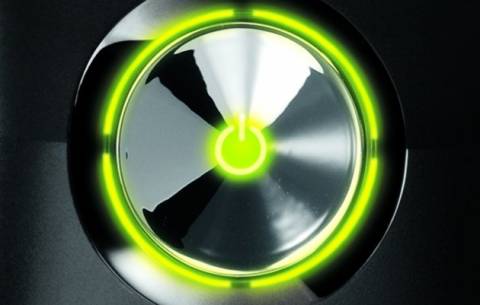The Xbox 720 Will/Won't Be Always Online
By Tren_Frost 0 Comments
I’m a pretty lazy blogger. Like, pretty bad. I’ve been sitting on a multi-blog series on next gen consoles since December and I haven’t published a single one. Well, nothing sparks up the flame of motivation like seeing something so ridiculous that you cannot sit by and idly let it go.

I’m sure many of you have heard about the Twitter post heard around the world the resulted in the departure of top Microsoft executive, Adam Orth. His inferred comments about an always-online next generation Xbox fanned a flame of Internet forum vitriol so large that either by force or choice (or as famed game designer Cliff Bleszinski suggests, unfortunate coincidence) he resigned from his position within a week of the post. Since then, multiple rumors have popped up both confirming and denying that the next Xbox will be always online. Yet out of all of that hubbub and shouting, none of that babble is actually spurring this blog together. Sure, I put ideas down and thought out potential posts, but I figured that would just be relegated my long, growing list of unfinished blogs. No, my motivation for this post comes from a member of the GameInformer online community, bunnyking.
Quite clearly one of those behind the “Microsoft is evil” band, bunnyking recently posted up a blog about his feelings on the matter. Now, I don’t mean for this to be a personal attack, but I cannot think of any way that I can describe his post without sounding so. It is by far one of the most reactionary, ill-thought, derogatory, inflammatory, fan-boyish posts I have ever read. Falsely advertised as blog on why the next Xbox will have an Internet requirement, bunnyking’s post is instead an eight-hundred-and-thirty-nine word bash of those who play on an Xbox console. Any claim he may have to being system neutral or of reasonable thinking is completely absent from the post. His comments were so ridiculously awful and lacking of substance that I cannot in all good conscious sit here and not offer up some form of rebuttal. So without further ado, I present to you some reasoning on why the next Xbox will not require an Internet connection, and also why it will.
Why It Won’t

As many people are aware, the broadband Internet penetration in the United States (and most of the rest of the world) is not very great. Sure, more people are getting connected to the Web every day, but many do not have access to fast, reliable broadband speeds. Only about thirty percent of American’s are subscribed to broadband Internet, making a potential market for an always-online console much smaller than one that doesn’t need to be connected. Take away additional consumers who have access to said broadband, but do not want to have a device that becomes a brick when their ISP has a hiccup, and your potential audience has become much smaller. Microsoft would have less of a market to sell to.
And then there’s…well…that’s about it. I’ve been trying for several days to come up with other reasons why Microsoft won’t require an Internet connection, but for every reason I could think of why Microsoft won’t I found a counter on why they would that made more sense for Microsoft, developers, content providers, and a wider audience of consumers. The only legitimate reason why Microsoft won’t is simply that they will narrow their potential gaming audience, and as much as I hope that this is a good enough reason for an always-online console to not be launching this fall, I believe the “why it will” makes more sense for Microsoft, their partners, and their non-gaming customers.
Why It Will
I’m going to go ahead and split this second section into two sections. Sectionception!
Ignoring The Internet

No, I’m not saying that Microsoft doesn’t care about its customers. I’m saying that Microsoft cares more about its shareholders than the people who use their products. There is nothing Microsoft HAS to do for you the consumer beyond what is Federally mandated. Since video games are one of the most extreme examples of first-world privileges and nowhere near being an unalienable right, Microsoft has absolute jack (aka, zero, not some whiskey/vodka cocktail) reasons to listen to the outcry of a vocal minority on the Internet. Now, without customers Microsoft cannot make money for their investors/stock holders, so of course they have to be friendly to consumers and offer them something they want. I’m simply saying that Microsoft (and just about every single corporation known to man) will only make a truly consumer friendly decision if it will pay their investors at some point. If there’s no money to be made, or it’s too expensive to be considered a charity effort, then Microsoft won’t do it.
Let’s not forget, Microsoft has already made decisions like this. Back when Microsoft first launched Xbox Live in 2002, they made it a requirement to have a broadband connection just to enjoy their service. If you’re old enough to remember back then, broadband Internet was not a readily available service to consumers. In fact, if you take the numbers everyone has been spewing around for those without broadband or reliable Internet, you’ll find that the Internet situation has vastly improved since then. So really, it’s less of a risk for Microsoft to require an internet connection for their new console now than it was for them to require broadband just to access a peripheral feature ten years ago.
Besides, what’s Microsoft’s incentive to listen to the Internet? If you look at the top twenty best-selling games on the Xbox 360 you’ll find that fifteen of them are online-centric games. These games are built almost entirely around their online components; either by cooperative or competitive multiplayer modes. I can’t imagine that the number of players who buy Call of Duty for only the campaign make up more than 5% of its sales. Of the remaining five games, only 3 did not ship with any form of multiplayer; two of which are Kinect games. Bethesda’s Skyrim is the only Triple-A game to make the top twenty list without any form of multiplayer. So if the majority of Xbox owners only ever play games that are practically useless without the Internet, why is it such an unbelievable concept that it would now become a requirement?

You can even take it a step further. Look at all the hubbub over the recent online-only games Diablo III and Sim City. Despite all the outrage over the seemingly unnecessary Internet connection, both sold record numbers for their respective franchises. People have asked Microsoft, “Haven’t you learned anything from the Diablo III or Sim City?” I would say yes. Microsoft (and many other companies) have learned that despite having an always online requirement (and even a rocky launch), gamers are willing to buy your games by the pallet load. Why should Microsoft (or really any company for that matter) listen to the Internet when ignoring them has been so lucrative?
Gaming And Beyond

This console generation is going to be very different from the last one. Really, it’s going to be different from every generation before it. Everyone in the industry is saying that the PS4 and Xbox 720 will be virtually identical in terms of power and architecture. The PS4 will probably have an edge over the 720 with its GDDR5 setup since I doubt Microsoft will match them there. However, the PS3 was more powerful than the 360 but you could only tell in first-party titles and most third-party titles were worse on the PS3 than the 360. Granted, that had a lot to due with the PS3’s Cell processor and partitioned RAM, but it still goes to pointing out that more power does not mean it will play better games. Power won’t be the decider, and exclusive games aren’t going to be the decider either. Despite Sony’s large catalogue of first-party titles, their total combined sales only ever match the total sales of Microsoft’s much fewer exclusives. A single Microsoft exclusive will outsell half of Sony’s games in a given year. Frankly, the only reason why the PS3 is finally outselling the 360 is because of the Japanese market. Either way, after seven years both consoles are neck-and-neck in terms of numbers. So if power, exclusive games, and architecture design are not going to be the big differentiator this generation, what is? Well, nothing gaming related!
This next-generation is going to be about moving beyond gaming. BEYOND gaming, not AWAY from gaming. Gaming will still be the foundation of these systems, but gaming will become a small part of everything these systems will be capable of. Even the ever stubborn Nintendo realized this to some extent by including universal remote technology in the Wii U. Both the PS4 and next Xbox will be adding in features to make their systems do more than simply play a video game. Music, movies, communication, and social media all contribute to these systems turning from dedicated video game consoles into multi-faceted entertainment boxes. From every rumor we can gather, Microsoft is poised to take the largest dive into that “everything” pool.
Microsoft will be working with every possible content provider than can to work out deals and agreements to bring their content onto the next Xbox or to use the console as a direct interface into the providers’ infrastructure. Cable and satellite networks and internet based providers such as Netflix and Hulu will receive a level of integration with the next Xbox that will overshadow what we currently have on any other device. That integration will only come if Microsoft can guarantee the safety and profitability of the content provided by these companies. An always-online console would be one such way to fulfill that guarantee. It could give Microsoft a better tool to make modding a console more difficult (though probably not impossible to) as well as finding and bricking said consoles thereby reducing the likelihood of content being pirated. If Microsoft can guarantee that every system will have an internet connection, they could charge more for advertisements in that small square in the bottom right corner of the dashboard. More revenue from advertisements mean more money for Microsoft to throw at content providers, which in turn encourages more providers to show their content, which in turn attracts more consumers to a growing ecosystem, which in turn generates more ad revenue, which in turn makes its way into content providers, which in turn… You see where I’m going.

Now before you go on some long rant about the evils of advertising, let me say that the only way we will ever be able to move the entertainment industry to an a la carte method of consumption is through advertising. Want to only subscribe to HBO? Well, ads on your Xbox dashboard might be one way for that to be possible. “Why can’t I just pay $15 a month like Netflix for HBO?” Well, that’s because HBO has such high overhead production costs that every HBO subscriber could pay $30 a month and HBO would still lose money. HBO only exists because its productions are subsidized by the ad revenue of cable and satellite network companies. If paying a subscription to Xbox Live and having a small ad in the corner of my screen allowed me to subscribe to HBO without needed a huge cable bill, my purchase of an always-online Xbox would be justified. I think many consumers would agree.
As for the benefits to gamers? Well, I can’t really think of any. That’s not to say there won’t be, only that I lack the imagination to come up with something substantial. The only think I can think of is that the next Xbox will make Internet a feature rather than a peripheral. What developers can do with a system they know will always be online is anyone’s guess, but it’s something to think on.
What I Think Will Happen
I would not be surprised if Microsoft did unveil a system that required the Internet to work, however I do not think that is what Microsoft will actually do. I do think that you will be able to play Fallout 4 by yourself on the next Xbox without being connected in. However, 99% of all of all the other things the system will be able to do will require a connection. Video games will only be a portion of what the Xbox will do and will likely be the only thing that won’t require the Internet. However (there’s a lot of these) I would also see it likely that if you bought one of the reduced price, subscription models or a system that was bundled in with your cable company that those particular SKUs would require an always on connection. You would be buying a system well below the price Microsoft itself subsidizes at, so they will be wanted to ensure you make up that money through digital purchases and ad placements.

Congratulations!
You made it to the end of my much longer than anticipated blog post. Trust me, I tried my best to pare down this writing and I still didn’t include numerous thoughts and arguments. So thank you for taking such a long time out of your day to reach the bottom. This took me several days to write up; not because I’m a slow writer, but because I’m a lazy one. Hopefully putting this out will finally spur me up to finish the half-dozen other blogs on next-gen that I have in production.

Log in to comment